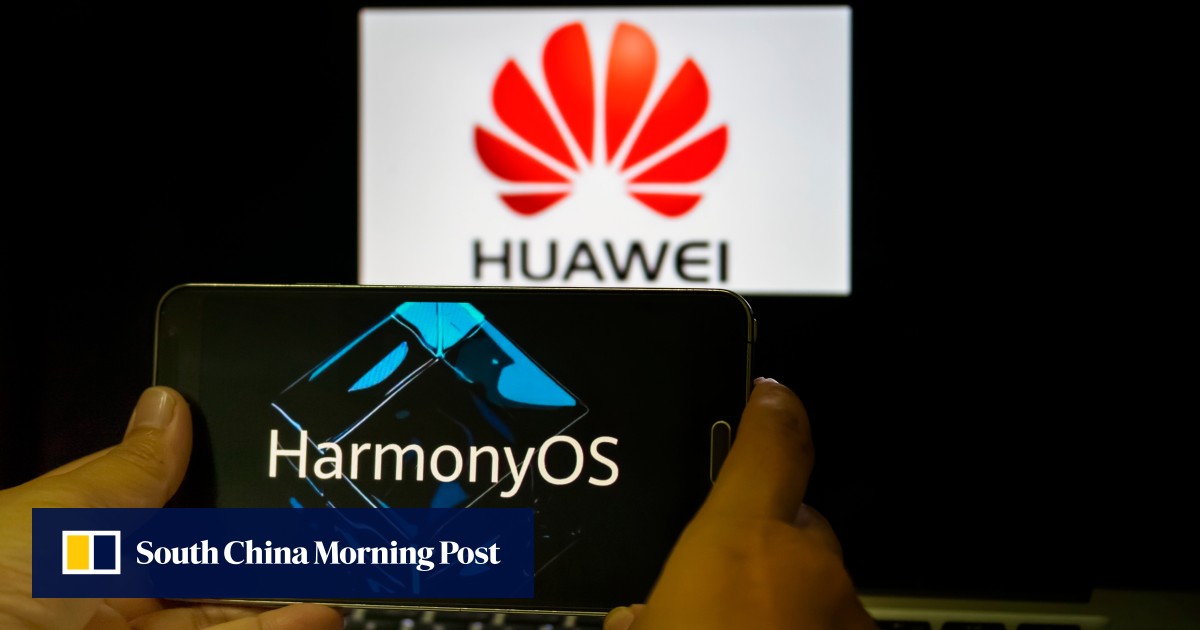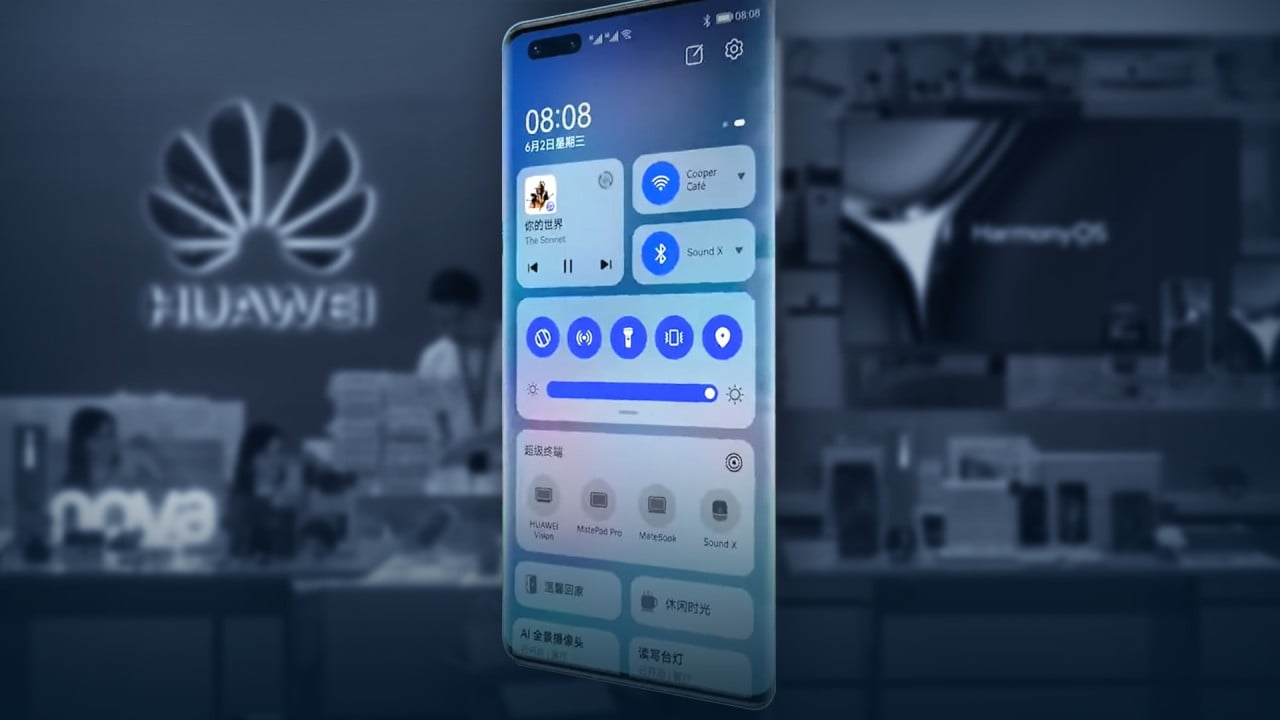Alibaba Group Holding is partnering with US-sanctioned Huawei Technologies to develop native versions of the e-commerce giant’s apps for the smartphone maker’s operating system HarmonyOS, which is meant to take on Google’s Android and Apple’s iOS in mainland China.
Eleven applications under Alibaba Group – including second-hand trading platform Xianyu, online travel platform Fliggy, courier service provider Cainiao, and food delivery app Ele.me – will get native applications for HarmonyOS, Huawei Mobile Service announced in a statement on Thursday.
Alibaba, owner of the South China Morning Post, has been one of the most aggressive in getting native applications on the operating system, which only recently stopped supporting Android apps. Alibaba’s Taobao, China’s largest e-commerce platform, signed a deal last month committing to HarmonyOS development. That came after Alibaba developed native versions of workplace collaboration app DingTalk and the online mapping service Amap last year.
Alipay, the mainland’s largest digital payment app owned by Alibaba fintech affiliate Ant Group, also agreed to develop a HarmonyOS app in December.
Tech hub Shenzhen to expedite adoption of apps built on Huawei’s HarmonyOS
Tech hub Shenzhen to expedite adoption of apps built on Huawei’s HarmonyOS
Early versions were criticised as being little more than a variant of Android, but the latest version released last month, HarmonyOS Next, has seen the competing systems further diverge.
Huawei plans to launch HarmonyOS Next for commercial use in the fourth quarter, the company said at its developer conference.
Other Chinese tech firms have also committed to supporting Huawei’s new OS amid Beijing’s push for technological self-reliance. There is also economic incentive: Huawei is one of the bestselling smartphone brands in China.
Delivery services giant Meituan has already finished the first version of its HarmonyOS app, as have other internet firms such as lifestyle social media platform Xiaohongshu, are making progress, according to Huawei.
Alibaba’s e-commerce rival JD.com was also among the tech firms that promised last month to develop for HarmonyOS Next.
As of January, more than 200 partners have initiated development of HarmonyOS apps, according to Huawei, which has said it aims to have 5,000 partners on board by the end of this year.
HarmonyOS is expected to surpass Apple’s iOS as the second-biggest operating system in China this year as a result of strong sales of its flagship Mate 60 series handsets. Huawei has completely phased out the use of Android in new smartphones, according to a report by TechInsights.
In the first six weeks of the year, Huawei saw sales jump 64 per cent, giving it 16.5 per cent of the market, the second-largest share after Vivo, according to data from Counterpoint Research.
Denial of responsibility! Chronicles Live is an automatic aggregator of the all world’s media. In each content, the hyperlink to the primary source is specified. All trademarks belong to their rightful owners, all materials to their authors. If you are the owner of the content and do not want us to publish your materials, please contact us by email – chronicleslive.com. The content will be deleted within 24 hours.


